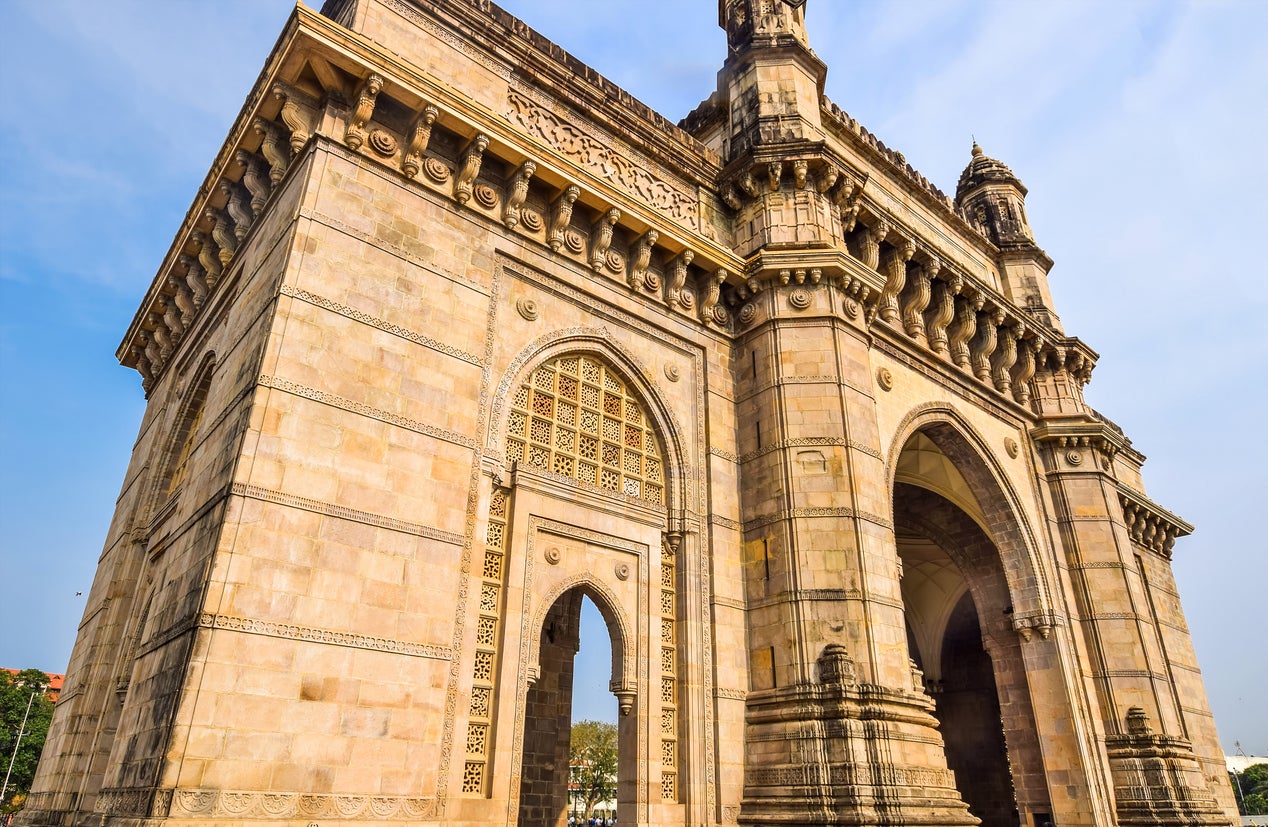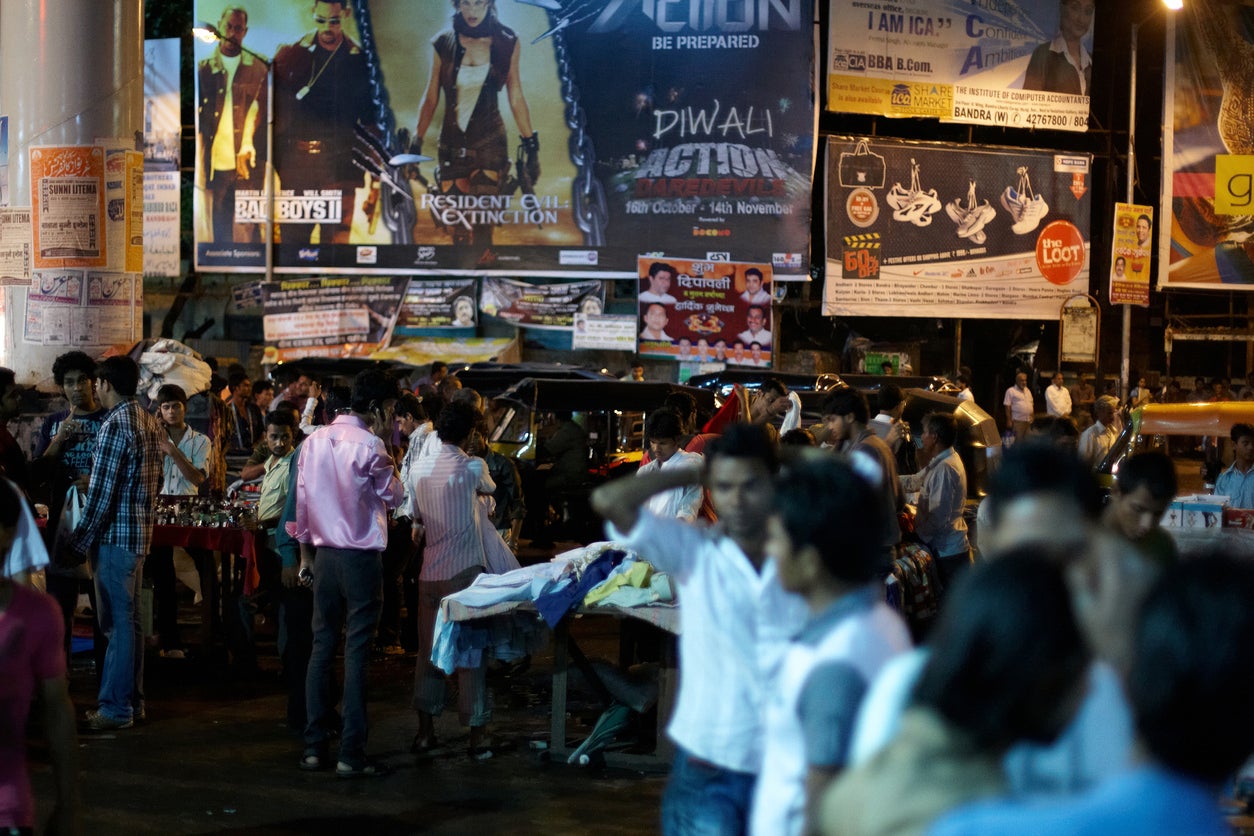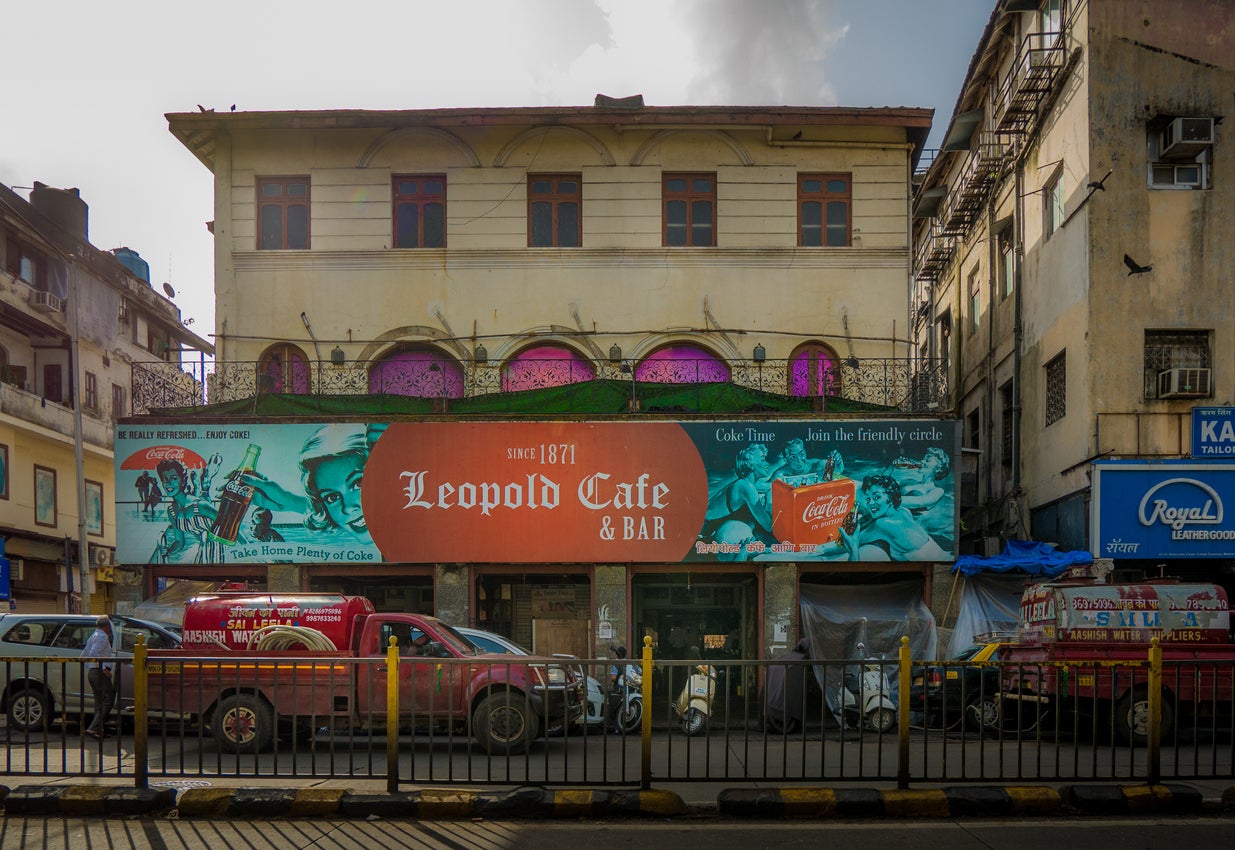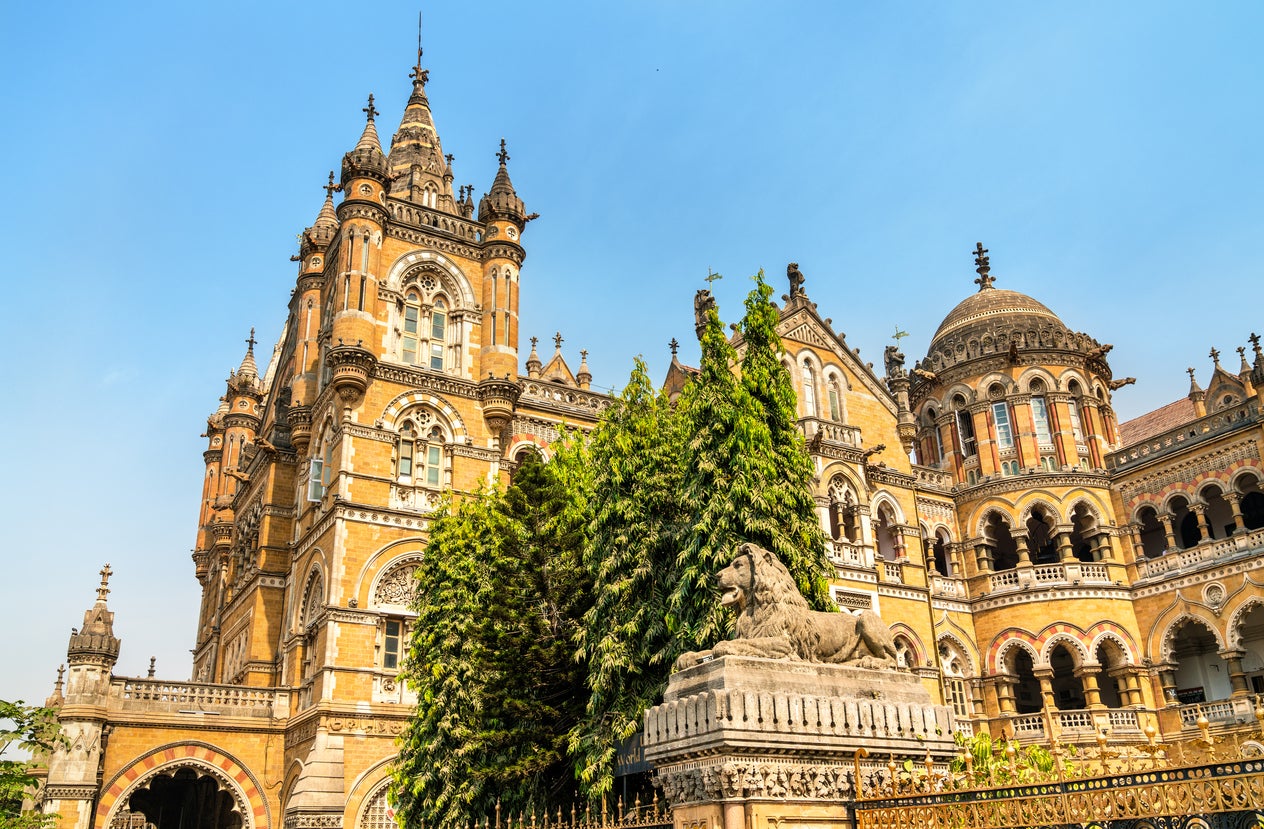The Independent's journalism is supported by our readers. When you purchase through links on our site, we may earn commission.
Mumbai guide: Where to eat, drink, shop and stay in India’s largest city
How to take the ultimate trip

Your support helps us to tell the story
From reproductive rights to climate change to Big Tech, The Independent is on the ground when the story is developing. Whether it's investigating the financials of Elon Musk's pro-Trump PAC or producing our latest documentary, 'The A Word', which shines a light on the American women fighting for reproductive rights, we know how important it is to parse out the facts from the messaging.
At such a critical moment in US history, we need reporters on the ground. Your donation allows us to keep sending journalists to speak to both sides of the story.
The Independent is trusted by Americans across the entire political spectrum. And unlike many other quality news outlets, we choose not to lock Americans out of our reporting and analysis with paywalls. We believe quality journalism should be available to everyone, paid for by those who can afford it.
Your support makes all the difference.There are plenty of reasons to visit Mumbai right now, starting with increased accessibility – Virgin Atlantic relaunched its London to Mumbai route in late October 2019, and the city’s metro system is also being expanded. Here’s our ultimate guide to India’s largest city.
The Independent’s hotel recommendations are unbiased, independent advice you can trust. On some occasions, we earn revenue if you click the links and book, but we never allow this to affect our coverage.
What to do
The unmissable attractions
Where to begin? Essential sights for newcomers include the seafront Gateway of India, a basalt arch built to commemorate the 1911 royal visit of King George V, but only completed in 1924. The area can get extremely crowded – thousands of people are funnelled through two or three seemingly defunct metal detectors, before a quick pat down. Consider decompressing a visit with a wander around the tranquil interior of the Taj Mahal Palace Hotel, with its enormous, fragrant floral displays and old world grandeur. The hotel and the Gateway of India are in Colaba, the southernmost tip of Mumbai.

Bollywood
For an insight into Bollywood, head back across the Bandra-Worli Sea Link (this spectacular bridge connects western Mumbai to southern Mumbai) to Bandra’s Bandstand Promenade, a seafront road which is home to some of Bollywood’s brightest stars – look out for locals posing outside the electric gates of properties, pulling the signature moves of their idols. It’s worth noting that the 2021 unveiling of Metro Line Three, a fully underground metro link between Colaba, Bandra and the SEEPZ economic zone, will make getting to Bandra from the city centre even easier.

Nightlife
Kamala Mills, in the city centre neighbourhood of Lower Parel, is a fantastic spot for a night out – this is where you’ll find Mumbai’s top cocktail bars and restaurants, including Bombay Canteen, a beautiful restaurant and bar modelled on an Indian living room. One of Kamala Mills’ latest openings is the Flea Bazaar Cafe, housed inside a former mill. This food hall-style affair has around 10 food options, including Bay Burgers, tucked inside a vintage caravan, and El Chapo Gangsta Mexicana, where you’ll pay under 270 RS (£3) for a huge plate of nachos. Drinks are ordered separately, at a huge bar in the centre.
Fancy seeing how Mumbai’s beautiful people live? You’re just a short walk from one of the city’s highest rooftop bars, AER, atop the Four Seasons Mumbai. Even more spectacular is Luna, on the St Regis Mumbai’s 37th floor.
Where to stay
One of Mumbai’s finest hotels is The Oberoi, a seafront property with spectacular views of Marine Drive, otherwise known as the Queen’s Necklace – a 3.6km-long oceanfront boulevard in south Mumbai. The hotel is renowned for its fantastic customer service (every room comes with a “butler button”) and the entire place exudes a sense of calm, thanks partly to the cathedral-like atrium. There’s also a stunning outdoor pool – nab a spot on one of the sun loungers and a waiter will deliver a complimentary pool kit containing a face spray, cold towel, sunscreen and bottled water. Doubles from 26,000 RS (£289), room only.
If you’re looking for a place closer to the airport, Bandra Kurla’s Sofitel BKC with its cosy, French boudoir-inspired rooms, is a great option, and the buffet breakfast is regarded as one of the best in Mumbai. Doubles from 7,900 RS (£88), B&B.
Abode, a gorgeous, 20-room boutique hotel in the heart of Colaba, feels incredibly homely. This single use plastic-free hotel is a fantastic option for solo travellers on a budget, and staff will happily arrange for nervous guests to be collected from the airport by a female driver. Doubles from 4,500 RS (£50), B&B.
Where to eat
Breakfast
Theobroma patisserie is the brainchild of Indian pastry chef Kainaz Messman. There are branches throughout Mumbai, and the one on Colaba Causeway is open from 8am until midnight. For breakfast, order the eggs kejriwal – chilli-topped eggs on toast. Don’t forget to grab some of the delicious brownies to snack on later in the day.
Lunch
Kyani & Co (+91 22 2201 1492) on JSS Road in the Dhobi Talao area, is Mumbai’s oldest Irani-owned cafe. It dates back to 1904 and the decor is simple and homely – chequered table cloths and mirrored cabinets filled with glass jars of biscuits. The speciality is bun maska, pillow-soft buttered buns baked in-house and best paired with a glass of sweet Iranian chai. Other great lunch options include the chicken dhansak curry and kheema pav (spiced minced lamb).
Dinner
Mumbai’s street food is the inspiration for some of the city’s best chefs. At the Taj Mahal Palace’s Masala Kraft restaurant, traditional Indian dishes have been given a modern twist. The restaurant’s delicious Masala Mumbai Tiffin, a delectable tribute to the city’s dabbawalas, is best described as a deconstructed tiffin box. Expect to pay around 4,000 RS (£45) for a meal for two.
Where to drink
The Colaba Causeway is where you’ll find Leopold Cafe, which opened in 1871 and became famous after Gregory David Roberts wrote about it in his book Shantaram. In 2008 it hit the headlines for another reason – it was one of the first places targeted by the terrorists, and the walls bear visible scars. It opens from 7.30am until midnight and it’s an ideal spot for people-watching. On a hot day, nothing beats one of the cafe’s fresh lime sodas.

For city views, nothing beats AER, the rooftop bar atop the Four Seasons Mumbai. The drinks aren’t just delicious but innovative too, with homegrown ingredients such as cardamom taking centre stage.
The nearby Kamala Mills complex is where you’ll find some of Mumbai’s best independent bars, along with the city’s top mixologists. Our favourite? YOUnion for the quirkily-shaped cocktail glasses (everything from suitcases to Stormtrooper helmets), London Taxi for the space-age decor and Kode for the chance to pair your cocktails with top notch cuisine.
Where to shop
Colaba Causeway has a colourful mix of high street brands and local stores – head here to buy everything from “I love Mumbai” magnets to trainers and posh chocolates.
Phoenix Market City is Mumbai’s biggest mall – you’ll find high street brands such as Sephora and Aldo alongside a cinema, flight simulator and artificial ski slope.
Architectural highlight
It’s got to be the Chhatrapati Shivaji Maharaj Terminus, best viewed from the dedicated viewing platform in the centre of the road which passes it. More than 3 million passengers and 1,000 trains pass through this station every day. Look out for the stone lion and tiger above the entrance – a nod to both Britain and India. The best time to visit is dawn, when coloured lights illuminate different sections.

Nuts and bolts
What currency do I need?
Indian rupees (RS).
What language do they speak?
Marathi is the official language, but both English and Hindi are spoken widely.
Should I tip?
If you’re happy with the service, 10 per cent in restaurants. Taxi drivers don’t generally expect tips.
What’s the time difference?
GMT+5h30.
What’s the average flight time from the UK?
Nine hours.
Public transport
The car sharing apps Ola and Uber are the best options.
Best view
For an unbeatable insight into local life, it’s got to be Dhobi Ghat, a huge public laundry where locals do their washing in 1,000 open-air troughs, viewed from the Mahalaxmi train station bridge.
Insider tip
Rise early one morning and brave the chaos of Mumbai’s Sassoon Dock fish market, which dates back to 1875. It kicks off around 5am and finishes by 11am. Twenty tonnes of fish are sold here every day, and it’s where most of Mumbai’s residents come to buy their seafood. Market traders, hotel chefs and wholesalers all flock here to haggle for the bounty being offloaded from the army of fishing vessels, many of which have been at sea for several weeks. You’ll see everything from enormous stingrays to sharks, crabs and swordfish.
Join our commenting forum
Join thought-provoking conversations, follow other Independent readers and see their replies
Comments